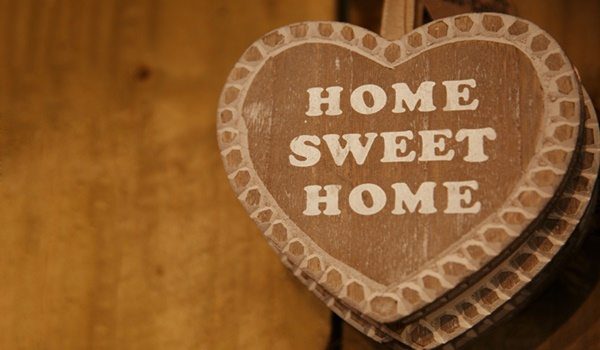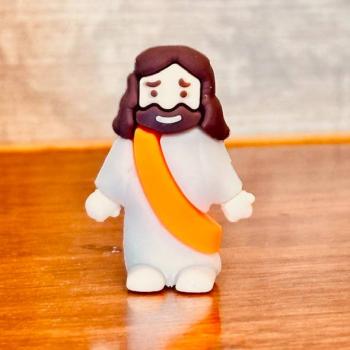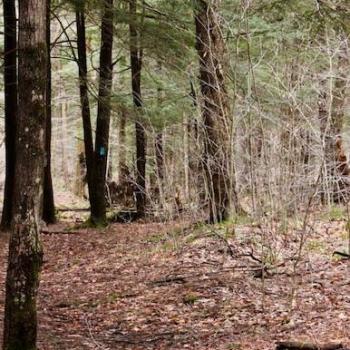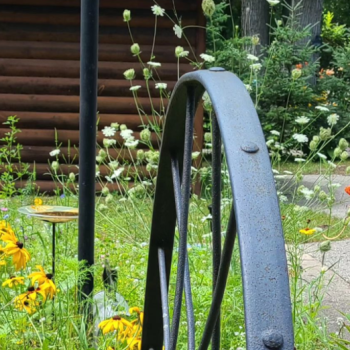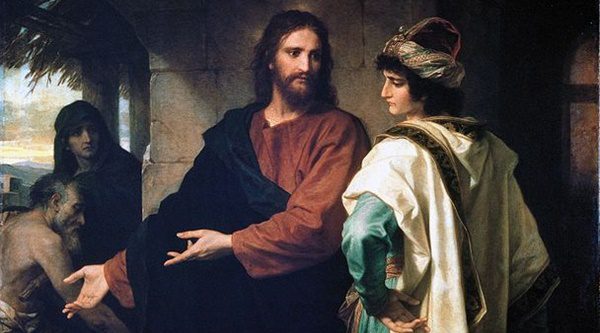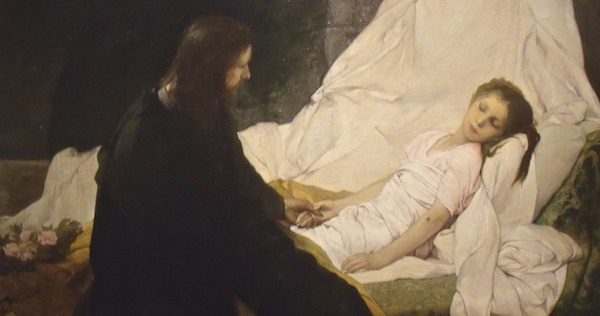A note from Rev. Tom Truby: This was the first sermon I preached after being away from Clarkes Church for nearly two months due to my hospitalization and rehabilitation. I had succumbed to viral encephalitis and nearly died. I pull in the Gospel Lesson from Mark 1:29-39 at the very end of the sermon. I visited the church two weeks ago but had no pastoral responsibilities.
Editor’s note: I am so excited that Tom is back, healthy again and writing sermons. I have the good pleasure of living close to Tom. I was able to visit him during his stay in the hospital. Tom is a dear friend of mine and a brilliant teacher of the Gospel and mimetic theory. It is with great pleasure that the Teaching Nonviolent Atonement blog post Tom’s sermons. I hope you continue to enjoy Tom’s insights on the Gospel’s call to love and nonviolence.
Year B, Epiphany 5
Februrary 4, 2018
Thomas L. Truby
Mark 1:29-39
It’s Good to Be Home
It is so good to be home, to be here, and to be with you again. When I was here two weeks ago I could barely walk and now I am getting around without a cane. This week I have been going to the gym every day with Joe Johnson where I work out or get beaten. We can see daily improvements.
Thank you for your prayers, for your interest, for your tangible support, and for just being here and carrying on in my absence. I knew you were praying for me and that I was held in the love of this community.
When I was here two weeks ago I was so overwhelmed by your expressions of love that I forgot to mention the way you took up an offering to pay for work on our bathroom so that it would be safe upon my return. Thank you! Thank you! You are an inspiration to me as I learn how to live the Jesus-driven life.
While in the hospital I had a lot of time to think. Memories from long ago were more accessible than my current life. For example, I knew I was a pastor of Clarkes Church but I couldn’t remember what the church looked like or where to find it. Now even the memory of not being able to remember is fading.
And strangely, my memory still has holes like Swiss cheese. I tell you this so that you will cut me some slack if I respond to what you are saying with a blank stare. I am probably in one of my Swiss cheese holes and your communication hasn’t quite reached normal human intelligence. Just let it go. We are all just human and sometimes it shows more than others.
During that long period of unconsciousness or maybe just as I was coming out of it, I became preoccupied with how humans could escape violence. Violence is my new word for sin. I was obsessed with the question. Each time I thought it through, I came back to the same point. We find our life by losing it. In losing our life we escape our violence that kills us. Violence is our way of saving our life, of assuring ourselves we are better than our neighbor and therefore more worthy to live. But our approach is all wrong.
The obsessive dream was my way of working on letting go of my ego so that I could rest in the arms of God’s love alone. Can I trust God with my life, my value, my worth, leaving all to him and go with the flow no matter where it takes me or do I need to push someone down to falsely insure I rise up? To the extent that I cannot let go of my self-serving ego and trust God, I sin. I am forgiven for that but it blocks my approach to God from my side.
Perhaps a story will illustrate this new way of life. It was early May in my senior year of high school. I was about to graduate from Randolph High School in Randolph, Nebraska. On a hot, humid Saturday afternoon my dad installed the insecticide applicators for the corn planter. He needed the insecticide to combat the new resistant corn root worm that was spreading through the Midwest. He must have brushed the applicator tube with his sweaty arm and contaminated it with Parathion. We later learned Parathion was a chemical very similar to mustard gas used in WWI.
On Sunday morning dad had trouble getting out of bed. He was uncoordinated and weak like I have been. It was the day our country school had its annual picnic where the men played softball and ate ice cream and everyone visited with their neighbors as they shared food.
My dad could barely hit the slow pitch softball and run to first base. What was wrong with him? He had aged terribly. I was almost embarrassed.
On Monday morning he fell out of bed and could not move. Mom called the ambulance and they headed for Sioux City, Iowa; the big city 60 miles to the east. Just before leaving Dad whispered that the farm was now my responsibility and he hoped that he would be back.
I was 18 years old, needing to write a term paper on the history of the King James Bible for English class, and was supposed to deliver the Salutatorian address for my graduating class. Now I had to run a farm my dad couldn’t keep up with in May, June and July.
I quit high school three weeks short of graduation and finished the term paper at home. I kept up with the chores but failed miserably at getting anything planted. The neighbors planted the beans and corn. Dad continued his stay in the hospital. Pretty soon terraced rows of soy beans and corn became discernable in the midst of a green haze. It was time to cultivate but I couldn’t get to it. Besides I would have to mount the cultivator on our tractor and I didn’t know how.
And then one day farmers from all around came and the hills turned from solid green to green rows on dark earth. The crops had been saved and our neighbors had been the ones to do it. I went to my commencement, gave the speech and my mother appeared in the audience. She had been able to leave my father’s side long enough to witness my graduation.
Now it was mid-June and the alfalfa needed to be cut, dried and piled into stacks. I was hopelessly behind. I don’t remember who cut the hay and raked it into windrows. It may have been me. What I do remember is the morning all the neighbors came to put it up. I think I was running a sweep mounted on an International C. The sweep pushed hay windrows into piles that could be lifted and dumped into a metal cage that formed the stack. All of the technicalities of who did what are pretty vague to me now.
But I do clearly remember the moment mom drove into the hayfield with dad beside her. They had just come home from the hospital where dad had been for about the same time as I have just been these last two months. Mom got dad his walker and opened the car door. He slowly pulled himself up and with that distinct walker shuffle moved toward his farmer peers. He looked just like me the day I came home from the hospital, only a generation earlier.
He didn’t know what to say and began to cry. I think he was overwhelmed with the grace and mercy of what his neighbors had done for him. I didn’t know how to feel. Was my model of manhood exhibiting weakness? Should I feel ashamed? It took me many years to resolve the tension of manhood and dependence.
And that wasn’t the only thing I had to resolve on that pivotal day. There was a surprise at the end of this story that I am still trying to understand and live: the farmers who did that work for us were almost all Catholic in a deeply divided community. Though we didn’t think they were saved, being Catholic and all, they saved us. They knew we were prejudiced against them and they too had been taught that only Catholics were really in with God. But they ignored their teaching and forgave us. They helped us when we were desperate.
This story helped form me. It showed me the face of Jesus and revealed the forgiving character of God. This was the message Jesus traveled throughout Galilee preaching and the meaning behind his throwing out demons. Those demons were spirits of division, of “us and them,” “in and out”, “loved and not loved.”
When the disciples found Jesus praying early in the morning and asked him to return to their village, Jesus said “Let’s head in the other direction, to the nearby villages, so that I can preach there too. That’s why I’ve come.” Jesus is not for just us, he is for us all. I am grateful we are learning how to live this way. It’s the way of life. Amen.
Image: Public Domain Pictures, Creative Commons License CCO 1.0

